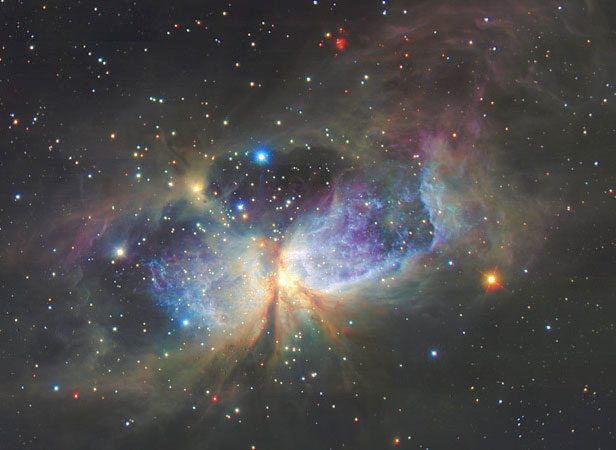Star Forming Region S106

Explanation:
Massive star IRS4 is beginning to spread its wings.
Born only about 100,000 years ago,
material streaming out from this newborn star
has formed the nebula dubbed Sharpless 106 Nebula (S106),
pictured above.
A large disk of
dust and gas orbiting
Infrared Source 4 (IRS4), visible in dark red near the image center,
gives the nebula an
hourglass shape.
S106 gas near IRS4 acts as an
emission nebula
as it emits light after being
ionized, while
dust far from
IRS4 reflects light
from the central star and so acts as a
reflection nebula.
Detailed inspection of
this representative color infrared image has
revealed hundreds of low-mass
brown dwarf stars lurking in
the nebula's gas.
S106 spans about 2
light-years and lies about 2000 light-years away toward the
constellation of
Cygnus.
Authors & editors:
Robert Nemiroff
(MTU) &
Jerry Bonnell
(USRA)
NASA Web Site Statements, Warnings,
and Disclaimers
NASA Official: Jay Norris.
Specific
rights apply.
A service of:
LHEA at
NASA /
GSFC
& Michigan Tech. U.

